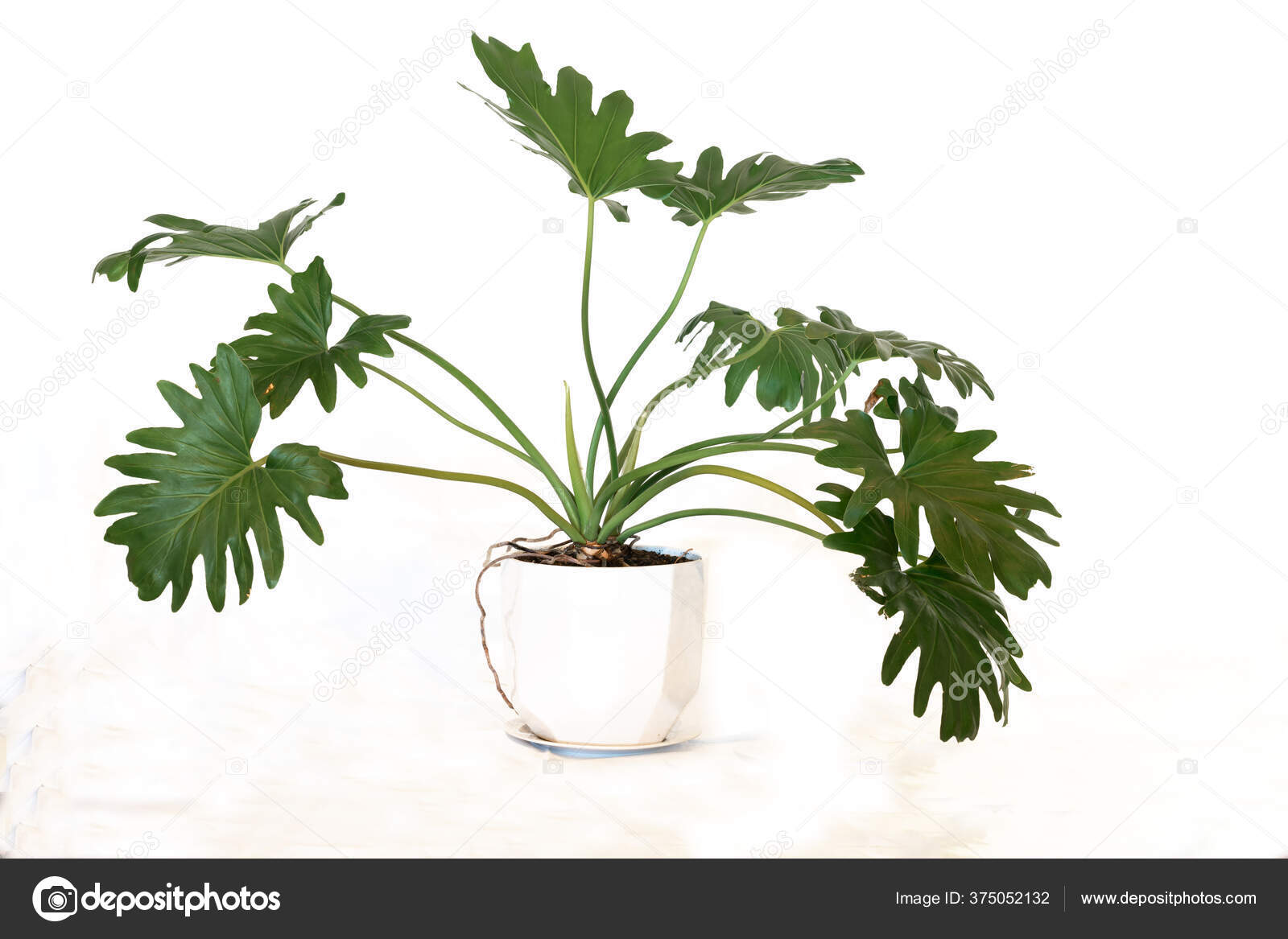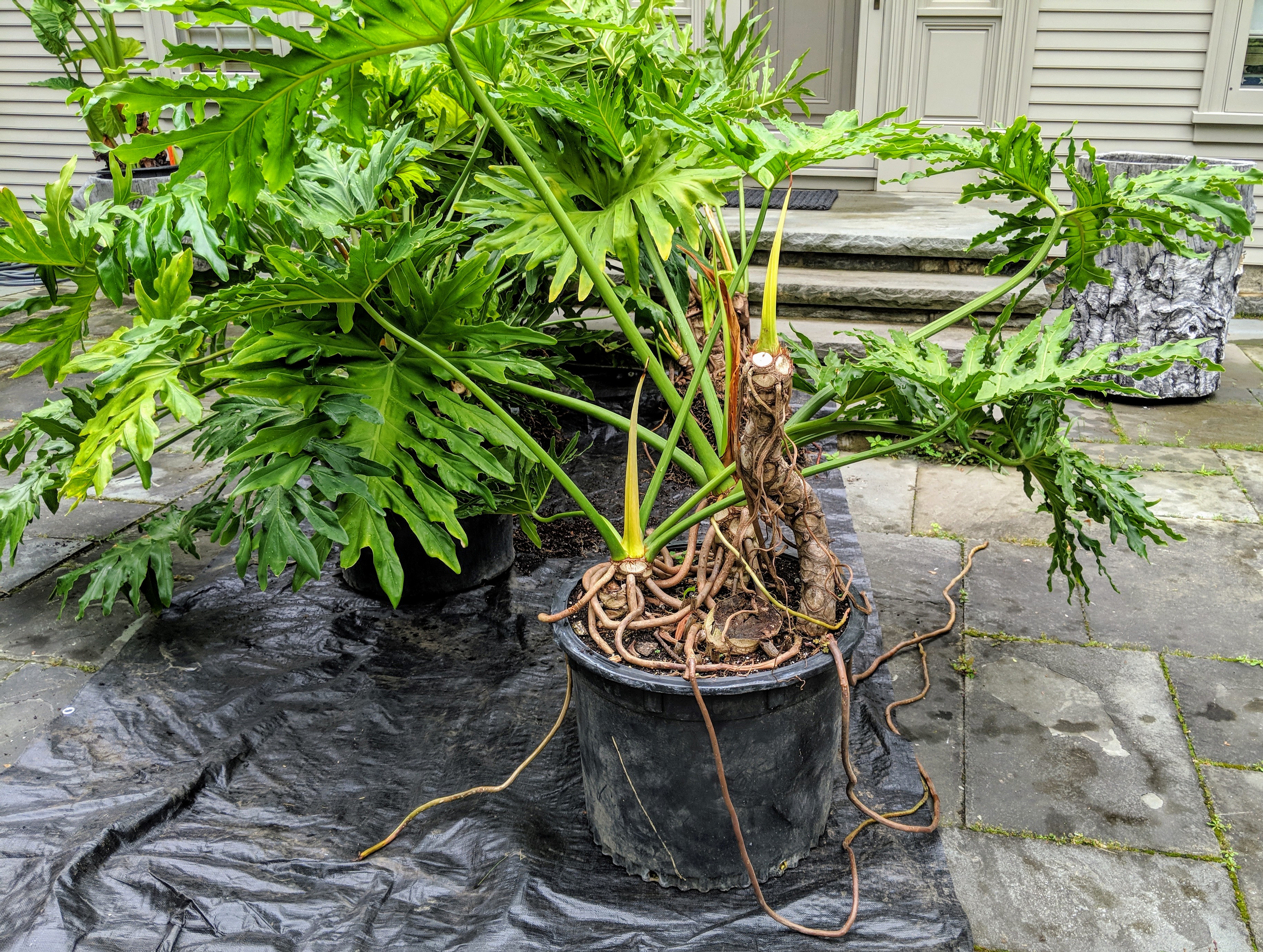Philodendron Selloum Aerial Roots
Philodendron have a more obvious sinus and cordate leaf blades their aerial roots are slim and spindly emerging in groups of up to 6 per node. A healthy vine is thick enough to conceal the remaining roots.

Master Gardener Cutting Aerial Philodendron Roots Won T Damage Press Enterprise Source: www.pe.com
The leaves attached to long smooth petioles.

Philodendron selloum aerial roots. Regardless of number of species the genus is the second-largest member of the family Araceae after genus AnthuriumTaxonomically the genus Philodendron is still poorly known. Always use sharp clippers that have been sterilized beforehand. Like most philodendron species hope philodendron is grown for their foliage.
Other sources accept different numbers. CAUSES SEVERE PAIN IN THE MOUTH IF EATEN. Philodendron produce aerial roots which they use in the jungle to aid in climbing trees and to provide supplemental nourishment.
TOXIC ONLY IF LARGE QUANTITIES EATEN. Philodendron bipinnatifidum its name means double feathery split-leaves grows a tree-like trunk and aerial roots that grow towards the ground to anchor it as it grows. Philodendron Selloum also known as Lacy Tree Philodendrons or Split-Leaf Philodendron is a fast-growing easy-going plant that makes a powerful impression in any setting.
How to Trim Air Roots on Philodendron. At this time you can bury lower aerial roots in the new pot. If aerial roots are extensive it may be a sign your orchid is overgrown and needs a larger pot.
They are separate species but part of the same family - Araceae. Philodendron Selloum Tree Philodendron Plant Care Guide. It does not tolerate salt build up so flush soil regularly or used distilled water for irrigation.
This is true even if the roots look dead. Philodendron selloum and Philodendron bipinnatifidum. Apart from that Philo Selloum can produce aerial roots that absorb water and nutrients.
1 To stabilize a plant but instead of stabilizing the plant in soil as soil roots do aerial roots help anchor a plant to trees or other structures and help it climb. Philodendron Selloum Care Growing Guide. Propagating a trailing philodendron into more plants is super easyheres how.
Leave aerial roots on your philodendronâ s back side therefore it could grab onto supports. If the top 2 inches of the soil are dry your plant could use a drink. If in bright light use fertilizer.
In nature a lot of vining plants use aerial roots to climb trees so they can reach higher points in the canopy with more. The Tree Philodendron is also capable of growing aerial roots. Pests diseases and animals.
Most of the non-climbers are capable of growing into immense plants with large deeply lobed leaves. Philodendrons have aerial and underground roots. The climbing Philodendrons produce aerial roots from the stems.
As epiphytes with aerial roots they are sensitive to overwatering so they dont. Mature plants can resemble a small tree with their woody stem and rapid growth reaching heights of up to 15 feet 45 meters. A healthy vine is thick enough to conceal the remaining roots.
These plants may also grow aerial roots and these can be clipped back. Epipremnum leaves emerge from a current leaf Philodendron emerge from a cataphyll. This usually needs to happen every few years.
Philodendron selloum is a synonym of Philodendron bipinnatifidum 2. The two popular types of Philodendron are climbers and non-climbing varieties. As epiphytes with aerial roots they are sensitive to overwatering so they dont want to sit in soggy soil.
They can be up to 4 feet long. The flowers have large white spathes but are inconspicuous under the leaves though older specimens are large enough that the flowers may be seen from below and often aerial roots can also be seen. Philodendrons do not have many natural enemies but they are susceptible to common houseplant pests such as aphids mealybugs scale insects and spider mites.
When taking on such a large houseplant you may be wondering how and when to water them. THE PROPER WAY TO WATER YOUR PHILODENDRON SELLOUM. It can produce aerial roots that absorb water and nutrients.
Philodendron is a large genus of flowering plants in the family AraceaeAs of September 2015 the World Checklist of Selected Plant Families accepted 489 species. This tropical plant is known as the Tree Philodendron for its ability to support itself at close to 4 feet. Philodendrons prefer soil that is consistently lightly moist.
Can i propagate new plants from my philodendron selloum. Leave aerial roots on your philodendrons backside so it can grab onto supports. Long ago science recognized two plants.
Philodendron Selloum leaves is shiny dark green large and deeply lobed. Hope philodendron is also known as lacy tree philodendron and horsehead philodendron 1. Typically you shouldnt have to water your Hope Selloum more than once a week.
The former are needed for them to attach to trees and plants as well as to transport water and nutrients. Philodendron selloum also known as tree Philodendron or lacy tree Philodendron is grown as a houseplant in most of the USIf growing indoors choose your container carefullyYour tree Philodendron will grow larger if it is in a pot that accommodates root growthIf you wish to keep the plant smaller plant it in a pot that allows only an inch or so of growth. It was later discovered that these are actually the same plant and the two were merged into one.
Aerial roots serve the same purpose as regular roots. Epipremnum produce one short aerial root per node. It is also possible to keep it in bright direct light but it will require a higher level of.
The best option is to leave the air roots alone. You will need to provide this plant with bright but indirect light on a daily basis. While partial shade is an option the leaves of the plant wont be quite as bright and vibrant.
You can root philodendron stem cuttings in either a small. It can tolerate deep shade but prefers bright indirect light and moist soil. The tree philodendron Philodendron bipinnatifidum is a big plant native to the tropical parts of South America specifically Brazil Bolivia Argentina and Paraguay.
Be careful not to force the roots because they may snap. The genus name Philodendron comes from the Greek words philo and dendron which means tree loving. One of the common names for the Philodendron bipinnatifidum is Tree Philodendron due to its natural habit of using aerial roots to attach itself to trees.
The climbers are suited to the average room as long as you provide firm support for the stems. Leaves of different shades of green are located alternately are large up to 2 m and varied in shape which at a young age may differ from the shape of the leaves of an adult plant. Thaumatophyllum bipinnatifidum Tree philodendron - A large shrub to 10 tall and wide with bold shiny deeply-lobed green leaves up to 4 feet long.
The trunk is relatively thick and woody with characteristic eye-drop leaf scars. If you see this take those roots and gently tuck them into the pot.

Philodendron Bipinnatifidum Stok Foto Philodendron Bipinnatifidum Gambar Bebas Royalti Depositphotos Source: id.depositphotos.com

Can Aerial Roots Be Propagated Help I Accidentally Cut Off A Large Aerial Root Off My Mother Philodendron Selloum Can This Thing Grow Into Another Plant Or Should I Compost It Source: www.reddit.com

Ask A Question Forum Philodendron Selloum Garden Org Source: garden.org

Indoor Plants Philodendron Plant Philodendron Big Leaf Plants Source: www.pinterest.com

Lacy Tree Philodendron Philodendron Selloum Aerial Roots Stock Photo Picture And Rights Managed Image Pic Bwi Blw044778 Agefotostock Source: www.agefotostock.com

Planting The Urns On My Summer House Terrace The Martha Stewart Blog Source: www.themarthablog.com